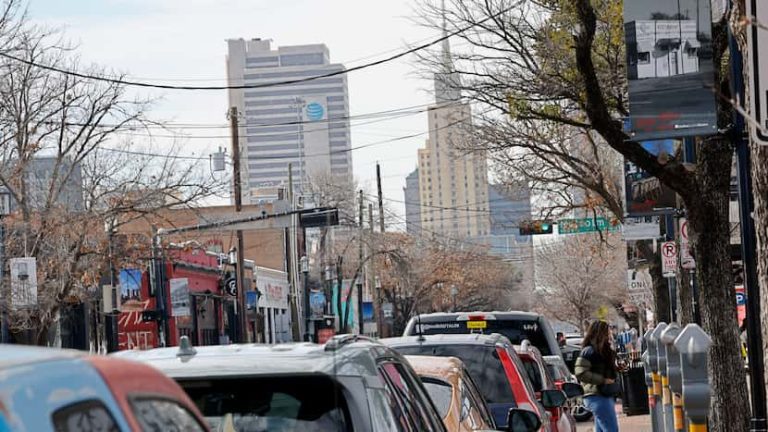Dallas drivers will soon be paying higher fees when parking on metered city streets.
Hourly parking meters will increase from a maximum of 95 cents to $1. In the cheapest area And maximum Under the changes approved by the Dallas City Council on Wednesday, starting Oct. 1, the fee will be $6 in more expensive areas of Dallas.
The rate increase will affect areas where meters are widely used, including the Central Business District, Uptown, the Baylor Hospital area and the Jefferson Boulevard area of Oak Cliff. Meter rates currently range from 5 cents to $1.50 per hour.
The increase is part of a series of city code changes, policy updates and new strategies approved by the Dallas City Council to update how the city manages on-street parking, curb space, loading and unloading zones, on-street markings and other parking-related issues. City officials say the changes are intended to standardize parking fees, simplify parking signs and other curb markings, free up parking spaces and increase revenue for the city.
Plans to overhaul how the city manages parking have been in the works since at least 2021. Dallas has no set rules for installing parking meters, adjusting fees or limiting parking time, and rates and restrictions within the city can vary from block to block.
“The minimum hourly parking rates haven’t changed in years, so I think they definitely needed to be increased,” said City Councilman Paul Ridley, whose jurisdiction covers parts of downtown and uptown.
Dallas had more than 3,500 parking meters as of the end of December, of which more than 1,000 were coin-operated. At least 500 of those coin-operated meters are scheduled to be replaced, according to a May 10 memo from Dallas Transportation Commissioner Gus Kankari.
According to the city, half of the meters haven’t had their rates updated in at least 10 years, and a further 11 percent have not seen their rates change in over 20 years.
“These parking conditions suggest that Dallas’ on-street parking system is currently operating well below its potential, resulting in lost revenue,” the city’s On-Street Parking and Off-Street Parking Management Policy Report states.
The report also included a series of recommendations for how the city should manage parking, such as evaluating usage at all paid parking lots to determine whether to increase or decrease rates or remove meters in some areas. Recommendations also include creating an application process and criteria for reviewing requests for unloading zones and reviewing residential parking programs to ensure they do not unintentionally impact communities of color, low-income residents, renters and other on-street parking users.
Ridley said the city would like to offer credit card payment options at more parking meters, but current fees and vendor commissions mean it’s not always profitable. He said he’s pleased the city is considering new policies to minimize and simplify street signs, address residential and handicapped parking and explore ways to move private business employees to off-street parking.
The rate changes starting in October will give the city time to inform residents about the rate increases and update meter rates. Deep Ellum’s parking meter rate changes are scheduled for May 2026. Delaying the change will allow more off-street parking to be developed and give the city time to upgrade Commerce Street to two-way traffic, Kahnkari said in the May 10 memo.
Stephanie Keller Hudiberg, executive director of the Deep Ellum Foundation, told the council Wednesday ahead of the vote that parking is the issue she hears most often in Deep Ellum. She said the changes are a good start. The city will implement these with all road users in mind.
“Dallas has yet to catch up with competing cities across the country, and this is an important and major step in the right direction that has been years in the making,” she said.

